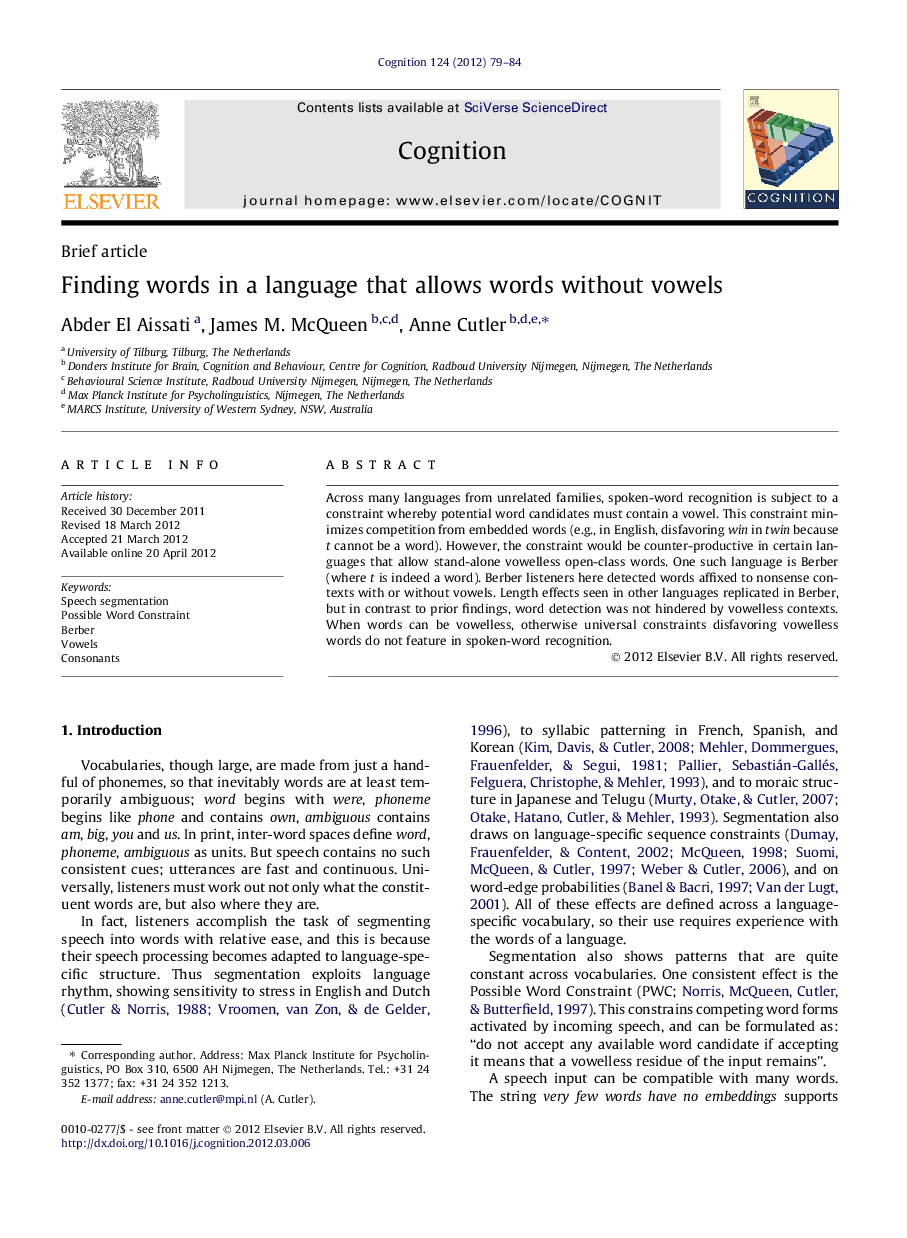| Article ID | Journal | Published Year | Pages | File Type |
|---|---|---|---|---|
| 10457669 | Cognition | 2012 | 6 Pages |
Abstract
Across many languages from unrelated families, spoken-word recognition is subject to a constraint whereby potential word candidates must contain a vowel. This constraint minimizes competition from embedded words (e.g., in English, disfavoring win in twin because t cannot be a word). However, the constraint would be counter-productive in certain languages that allow stand-alone vowelless open-class words. One such language is Berber (where t is indeed a word). Berber listeners here detected words affixed to nonsense contexts with or without vowels. Length effects seen in other languages replicated in Berber, but in contrast to prior findings, word detection was not hindered by vowelless contexts. When words can be vowelless, otherwise universal constraints disfavoring vowelless words do not feature in spoken-word recognition.
Related Topics
Life Sciences
Neuroscience
Cognitive Neuroscience
Authors
Abder El Aissati, James M. McQueen, Anne Cutler,
